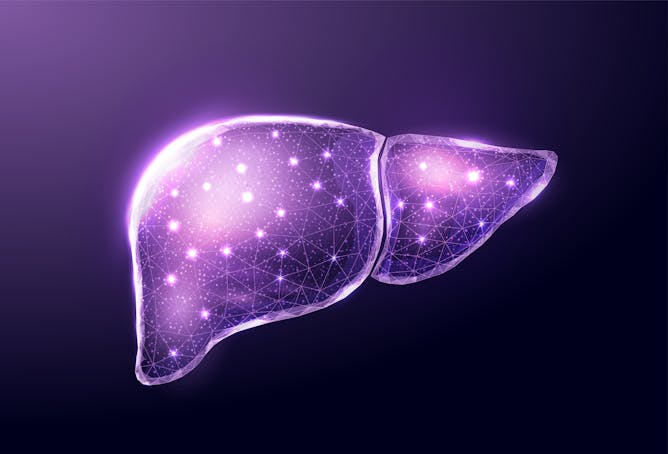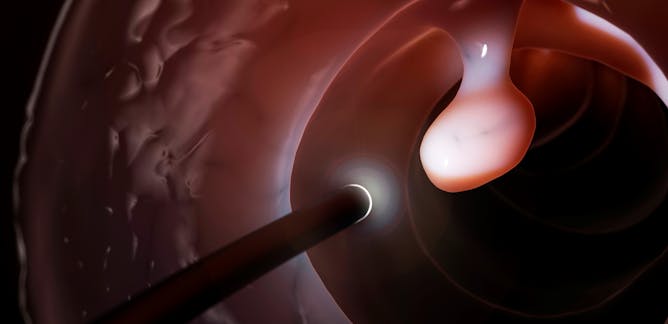|
|
|
|
A recently published study detailed a technique to encourage the liver to generate new tissue, which could be crucial for people with severe liver disease. The researchers found that “activating a particular protein with a new medication can help accelerate regeneration and repair after severe liver injury or partial surgical removal in mice,” writes co-author and the founding director of the Pittsburgh Liver Research Center Satdarshan (Paul) Singh Monga at University of Pittsburgh Health Sciences. His research team hopes this technique could one day address the shortage of livers available for transplantation.
Another recent paper, which called into question the efficacy of colonoscopies, has ignited controversy and spurred a lot of media coverage. To dig into the details of this study, editors here called on University of South Carolina colorectal cancer researcher Franklin Berger, who writes that the procedure is “one of the most critical and effective tools to screen for, detect and prevent this prevalent and lethal form of cancer.” He unpacks the crucial nuances of the study and explains alternatives to colonoscopies – some of which are available now and others, such as liquid biopsy cancer tests, which are still in development.
The holidays are coming up and there are worries of more COVID-19 cases as the seasons change and more people spend time indoors. A team of researchers who have been closely following testing throughout the pandemic offer sound advice on using rapid tests effectively. They provide answers to common questions and explain how and when to use these COVID-19 tests to know if you’re infected and how long you may be infectious.
Also in this week’s science news:
If there’s a subject you’d like our team of science editors to investigate, please reply to this email.
|

|
Martin La Monica
Director of Editorial Projects and Newsletters
|
|

Tylenol overdose is one of the leading causes of liver injury requiring liver transplantation.
Elena Merkulova/iStock via Getty Images
Satdarshan (Paul) Singh Monga, University of Pittsburgh Health Sciences
Liver transplant waitlists can range from 30 days to over five years. Developing treatments that spur liver regeneration could help reduce demand for scarce organs.
|
|
|

Franklin G. Berger, University of South Carolina
Don’t be confused by recent media reports – colonoscopies are still the best way to detect and prevent colon cancer.
| |

Ryan Hansen Lee, University of California, Los Angeles
Computer-based neural networks can learn to do tasks. A new type of material, called a mechanical neural network, applies similar ideas to a physical structure.
|

Taylor Ganz, University of Washington
Wildfires are remaking western US forests. Decisions about managing forests that have burned should factor in how fires change animal behavior and interactions between predators and prey.
| |

Nathaniel Hafer, UMass Chan Medical School; Apurv Soni, UMass Chan Medical School; Yukari Manabe, Johns Hopkins University
Rapid tests can be an incredibly useful tool for early detection of COVID-19. Unfortunately, they sometimes leave people with more questions than answers.
|
|
|
|
|
-
Aidan Burn, Tufts University
Bits of viral genes incorporated into human DNA have been linked to cancer, ALS and schizophrenia. But many of these genes may not be harmful, and could even protect against infectious disease.
-
Elana Bernstein, University of Dayton
Anxiety is the most common mental health issue facing children and adolescents. But research shows that early screening – including in school settings – can identify children who are at risk.
-
Jennie L. Durant, University of California, Davis
Honey bees, wild and native bees face threats from parasites, pesticides and habitat loss. Shorter winters, more extreme weather and more habitat destruction won’t help.
-
Morten H. Christiansen, Cornell University; Pablo Contreras Kallens, Cornell University
Linguists have long considered grammar to be the glue of language, and key to how children learn it. But new prose-writing AIs suggest language experience may be more important than grammar.
-
Seth Blumsack, Penn State; Lara B. Fowler, Penn State
Roundtable discussions with leaders from major energy companies reveal a lack of pressure from regulators or investors and a strong belief that fossil fuel use will continue for years to come.
|
|
|
| | |
| | |
| |
| |
| |
|
|
|